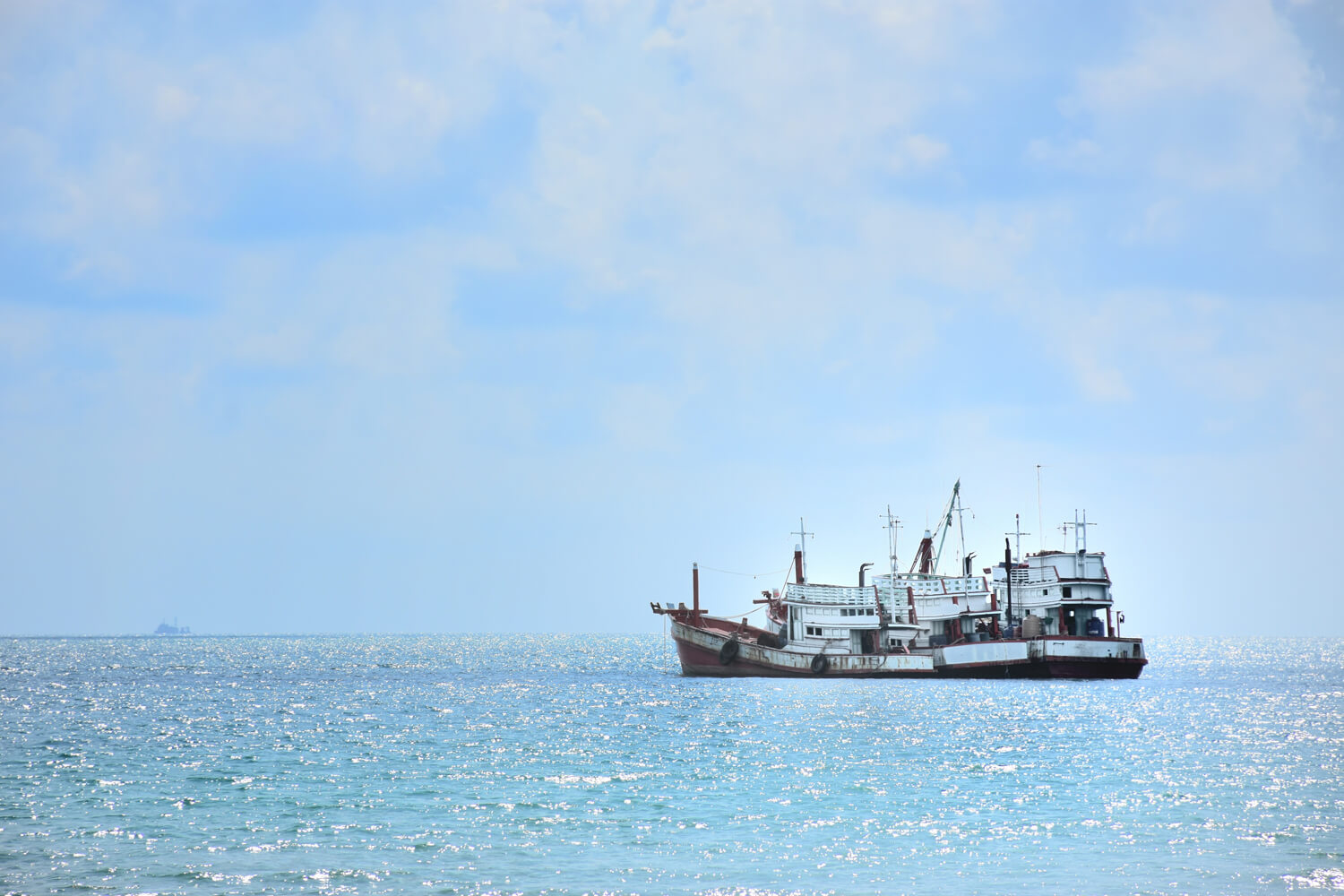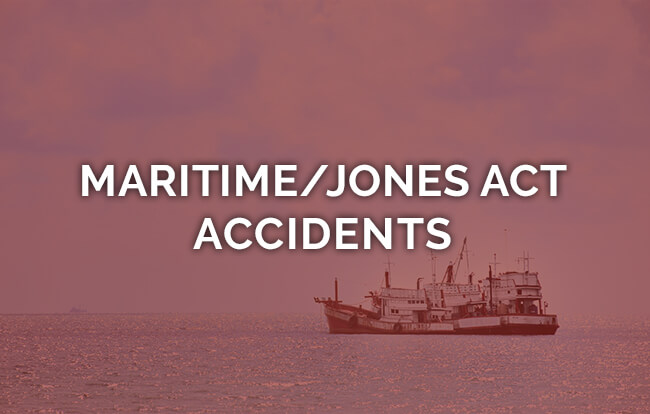Experienced. Dedicated. Personal Injury Attorneys.
Experienced. Dedicated.
Personal Injury Attorneys.
MARITIME/JONES ACT ACCIDENTS
We devote a great deal of our law practice to focusing on Jones Act and Maritime Law. We have years of experience representing injured workers nationwide in Jones Act and Maritime Cases. We offer free home or hospital consultations, cash loans for living expenses where allowed by law, and a competitive fee structure.
Jones Act negligence may be found from many different situations, including: failure to properly control equipment and/or vessel; failure to provide and maintain reasonably safe equipment; failure to provide adequate safety measures; failure to provide proper training; dangerous work; negligent orders; requiring excessive overtime; failure to avoid or minimize harm from heavy weather; failure to make inspections; inadequate supervision; appointing an inexperienced or incompetent crewmember to operate machinery; and failure to consider a seaman’s physical limitations in assigning duties.
Survivors of seamen killed in the line of duty may also file a wrongful death claim under the Jones Act or the Death on the High Seas Act, which allows dependent survivors of anyone who dies more than three miles offshore — including those who do not qualify as seamen under the Jones Act — to sue the responsible party for the loss of their loved one’s wages. If the seaman or worker was killed within three nautical miles of shore, other law may apply.
Unseaworthiness – Claims based upon an “unseaworthy” condition are frequently brought together with claims concerning Jones Act negligence. The vessel and its operator owe to a seaman assigned to the vessel the duty to provide a seaworthy vessel, and are liable for an injury to a seaman resulting from breach of that duty.
There are virtually unlimited number of ways that a vessel may be found unseaworthy. The following are examples of the more common unseaworthy conditions: improper use of vessel or equipment creating an unsafe condition; vessel inadequately manned; incompetent or inadequate crew; defective equipment; defective packaging of stores and cargo; unreasonably slippery decks; obstructions on deck; defective hatch covers; open hatches resulting in fall; and unsafe ladders and stairs. As opposed to Jones Act negligence, claims for unseaworthiness impose strict liability upon the vessel operator as well as the vessel owner. The vessel operator and vessel owner has few defenses to claims against them for unseaworthiness.
The Jones Act is a Federal law passed in 1920 that regulates sailing within the United States. The act allows “seamen” to collect compensation for lost wages, lost earning capacity, past and future pain and suffering, past and future mental anguish and disfigurement. Additionally, the act provides compensation for living expenses (“maintenance) and medical expenses (“cure”). Survivors of seamen killed in the line of duty may also file a wrongful death claim under the Jones Act or the Death on the High Seas Act, which allows dependent survivors of anyone who dies more than three miles offshore — including those who do not qualify as seamen under the Jones Act — to sue the responsible party for the loss of their loved one’s wages. If the seaman or worker was killed within three nautical miles of shore, other law may apply.
Longshoremen, pilots, and those who work on fixed platforms are not “seamen,” but have other maritime remedies available for injuries. Longshoremen, pilots and platform workers are protected by maritime law and factors such as status of the worker, where the injury took place, as well as the parties involved may affect the potential rights and remedies of the injured worker.
Working on the water can be financially and personally rewarding, but it can also be dangerous. If you or someone you love has been injured or killed at sea because of someone else’s negligence, acting quickly to secure your right to maximum financial compensation is strongly advised. For a free consultation with a Nationwide Jones Act, maritime and offshore injury attorney, contact us today and start getting answers.









